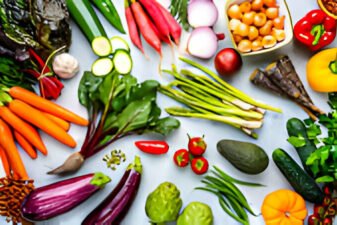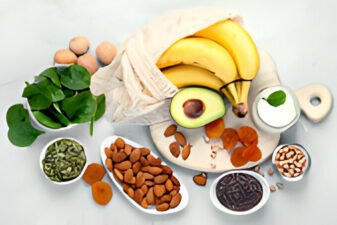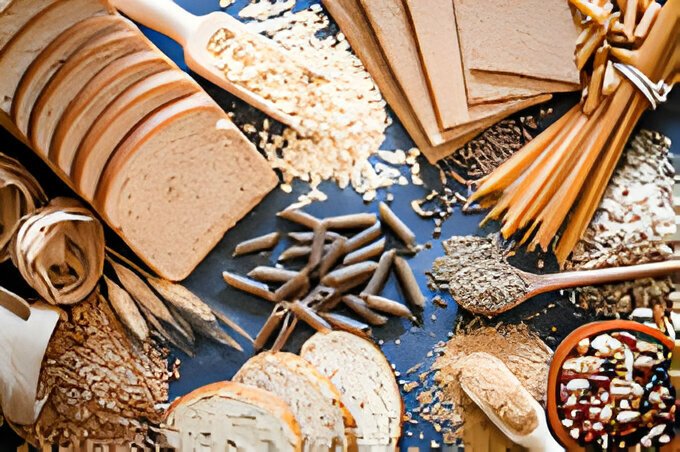Good Carbohydrates
Carbohydrate (meaning “carbon plus water”) is the most widely eaten food in the world. Along with fat and protein, carbohydrate is an essential nutrient, but what makes carbs different is that they are easily converted to energy by the body. Also, glucose, the simplest carbohydrate, is essential fuel for the brain. Any healthy diet must include carbohydrates.
How to Choose Good Carbs
As a general rule, the more natural and unrefined the carb-food, the healthier it is. Also, the lower the glycemic index (GI) value, the better the carb is for your blood glucose levels. So, choose unrefined
whole grain carbs that have a low or intermediate GI rating.
Carbohydrates and Glycemic Index (GI)
The Glycemic Index (GI) is a relatively new classification of carbohydrates based on their immediate effect on our blood glucose (blood sugar) levels. Carbs that are converted to glucose very fast have a high GI value. Carbs that metabolize slowly, releasing glucose gradually into the blood stream have a low GI value. Nutritional experts now believe that high blood sugar and insulin levels, caused by overeating high-GI carbs in our present-day diet, are one of the key factors responsible for the rise in heart disease, hypertension, diabetes and insulin resistance.
Good Carb Foods
1. Fruit & Vegetables
Fruit and vegetables are generally low in calories and packed with nutrients like vitamins, minerals, phytochemicals and fiber. This means they are a healthy addition to any diet, especially if you are trying to lose weight. Studies show that people who eat plenty of fruit and vegetables have a lower risk for heart disease and some cancers. For optimum nutrition, eat at least 5 portions of fruit and vegetables every day – fresh, canned, frozen or cooked.
2. Whole Grains
This group includes pasta, rice and noodles – the starchy carbohydrates – your body’s main source of energy. All these foods begin life as a grain, such as wheat, rye, corn, rice or barley. Potatoes and grains are very healthy and filling, but for optimum health and glycemic benefits choose unrefined whole grain versions of these foods over refined versions.
Unrefined carbohydrates are medium-calorie and because they contain the whole grain, including the bran and the germ, they’re higher in fiber and keep you feeling fuller for longer – great if you’re trying to reduce weight. Examples include basmati or brown rice, Uncle Ben’s Converted long grain rice, wholegrain bread, porridge oats, and wholewheat pasta.
Curiously, the leanest and longest living people in the industrialized world are the Japanese whose diet contains regular amounts of these healthy wholegrain carbohydrates.
3. Potatoes
Another high-starch carbohydrate, potatoes have higher GI values. New white potatoes (fresh or canned) are better choices, with sweet potatoes being best of all. Potatoes are a fat-free healthy food that provide useful amounts of vitamin C, potassium and fiber. Their high GI value can be reduced by eating them with other low-GI foods as part of the same meal.
How Much Carbohydrate Do We Need in Our Daily Diet?
Assuming you choose nutritious less refined carbohydrates, you can eat anything between 40 and 60 percent of your calories in the form of carbs. If you wish to try a low-carb diet, that’s fine – but for optimum health you should avoid the very-low-carb weight loss plans except for very short periods of time. Some of these very-low-carb diets rely on nutritional supplements, which generally speaking is not a good long term dietary habit to adopt.











